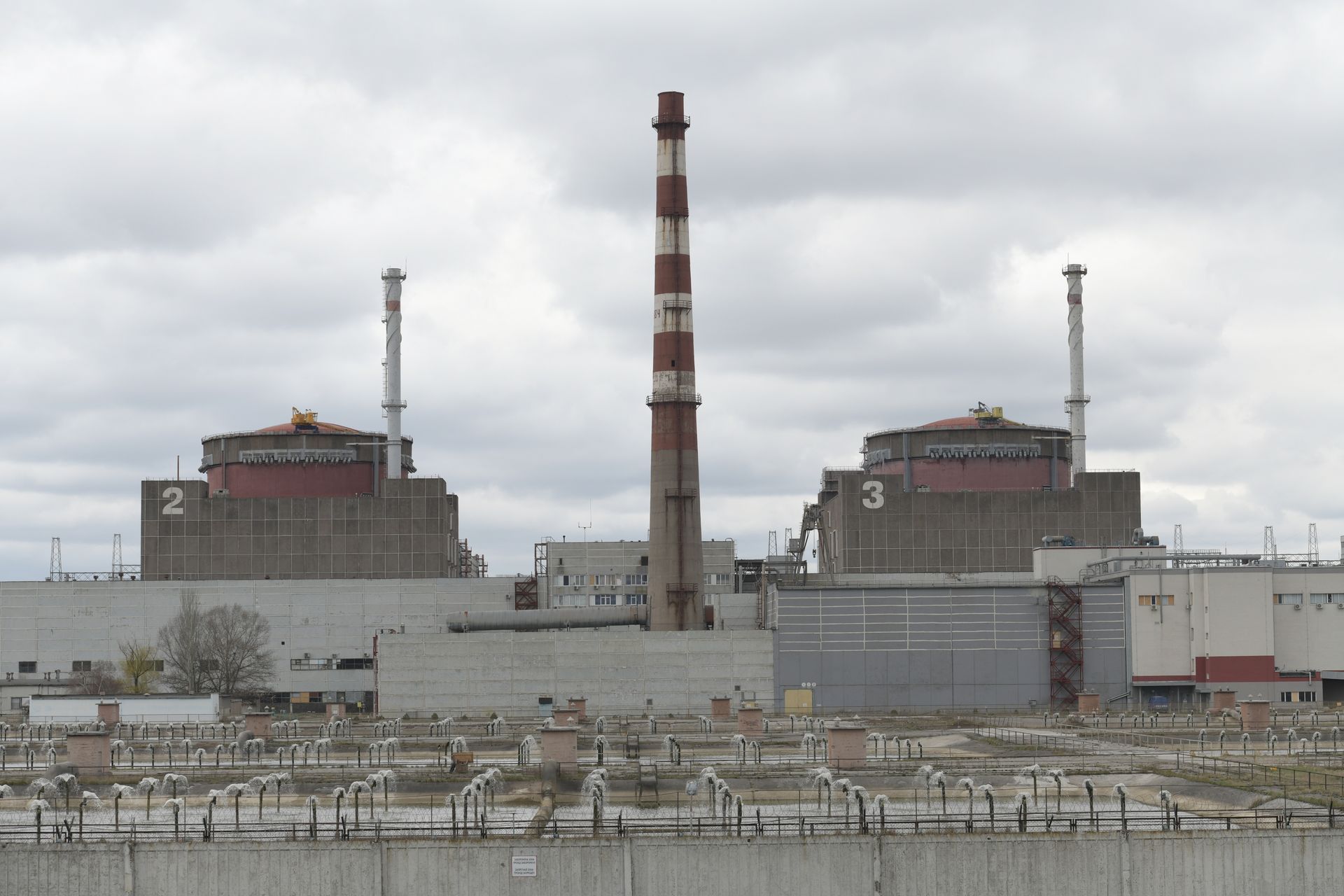Record 120-hour power blackout hits Russian-occupied Zaporizhzhia nuclear power plant

The Russian-occupied Zaporizhzhia Nuclear Power Plant (ZNPP) has been disconnected from the Ukrainian electricity grid for a record 120 hours, while Russia attempts to restart the nuclear reactors, Greenpeace Ukraine told the Kyiv Independent on Sept. 29.
The ZNPP, the largest nuclear power station in Europe, has been under Russian occupation since March 2022.
Shaun Burnie, nuclear energy expert at Greenpeace Ukraine, said that the 120-hour disconnection marks "the longest by far loss of power to the plant since the criminal Russian attack and occupation in 2022."
"There is no justification for Russian engineers to fail to repair the damage to the grid line, and this must be done immediately," Burnie said.
Following the 2011 Japanese nuclear disaster in Fukushima, Japan, European regulations introduced stress tests, which showed that a nuclear plant can withstand a loss of external power for up to 72 hours.
Until now, operation beyond that threshold had remained untested.
Russian troops reportedly struck a power line on Sept. 23, severing the plant’s connection to Ukraine’s electrical grid. The final functioning line supplying electricity to the facility was cut at approximately 5 p.m. local time.
This marks the 10th blackout at the plant since the start of Russia’s full-scale invasion in 2022.
As a result, the plant has been forced to rely on backup diesel generators to maintain critical safety functions and provide electricity, according to Energoatom.
"This creates a critical situation that threatens the security of not only Ukraine but also European countries," Energoatom said.

The company warned that the diesel generators, designed only for emergency use, cannot sustain the plant’s operational needs for an extended period. A shutdown of these generators could result in a loss of control over the facility’s nuclear safety systems.
Burnie argues that the primary threat, following Russia's "deliberate" damage to the 750kV power line, is attempting to reconnect the occupied Ukraine grid to the territories south and east of ZNPP and then restart one of the reactors.
"The Russian attempt to reconnect the ZNPP may be the worst yet, posing the greatest risks. Moscow is actively attempting to enlist the IAEA in this adventure and justify its theft of the ZNPP," Ukraine’s Foreign Minister Andrii Sybiha wrote on X on Sept. 27.
A monitoring mission from the International Atomic Energy Agency (IAEA) has been stationed at the site since September 2022, but Russian authorities have frequently restricted its access.
Rafael Grossi, IAEA director general, visited Moscow on Sept. 26 to participate in Russia's World Atomic Week, which marked the 80th anniversary of Russia's nuclear industry. He also met with Russia's nuclear agency Rosatom, which has been found to be complicit in war crimes at the ZNPP.
Just days before the event, Truth Hounds and Greenpeace Ukraine published on Sept. 24 research about Rosatom's complicity in war crimes, including the detention and torture of staff at the nuclear power plant, adding to a growing risk of a nuclear disaster.
"Grossi must insist to Russia that no restart is possible of any reactor under the condition of illegal Russian occupation, and the nuclear plant must be de-ococcupied from Russian armed forces and Rosatom, and returned to Ukraine," Burnie said.
Ukraine continues to demand the withdrawal of Russian forces from the plant and the establishment of a demilitarized zone around the facility, a proposal Russia has repeatedly rejected.











